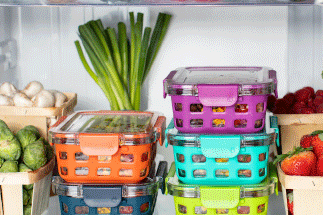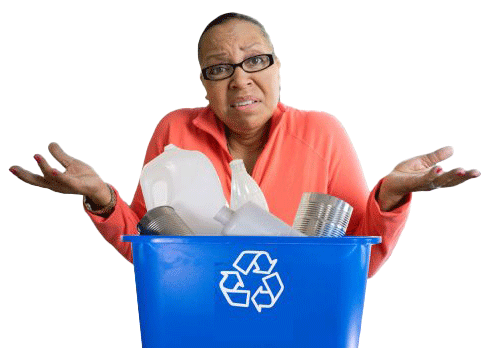Earth Day 2025
Find Your Local Earth Day EventCalifornians Do Their Part to Recycle:

billion
bottles and cans

billion
pounds of electronic waste

billion
gallons of used oil

million
tires

million
gallons of paint

million
mattresses
3 Ways to Cut Your Trash Footprint

Say NO to single-use packaging and products
Turn down:
- Plastic bags
- Straws
- Plastic utensils
- Condiment packets

Save trees wasted on snail mail
Choose paperless billing and stop junk mail with these tips

Reuse to ditch disposables!
Switch to reusable:
- Water bottles
- Kitchen towels
- Utensils
- Shopping bags
The average family throws out $1500 of food a year
Tips to cut food waste:

Reorganize your fridge
Put older items in front to eat first!

Plan your meals for the week
Plan your meals ahead and prep them for the week, so nothing gets forgotten and goes bad.
Fight Climate Change and Cut Trash Pollution
Reducing your waste:

Saves money by buying less and reusing

Saves energy used to make, use and discard products

Reduces climate pollution

Helps the planet stay livable for our children and grandchildren

Lowers trash in our neighborhoods and landfills
The solution to trash pollution is changing to a circular use economy
that reuses all materials
Earth Day Led to the First Environmental Protection
U.S. Senator Gaylord Nelson (WI) organized the first Earth Day in 1970 to bring environmental issues to the national political agenda.
After the 1962 publication of Rachel Carson’s Silent Spring and two prominent environmental disasters in 1969:
- A massive oil spill off the coast of Santa Barbara
- A fire on the heavily polluted Cuyahoga River in Ohio
More than 20 million Americans rallied across the country, demanding action on pollution.
By December 1970, Congress authorized the creation of the U.S. Environmental Protection Agency and passed the first environmental regulation laws in the U.S.
Today, 196 countries and more than a billion people celebrate Earth Day.
California is taking on the climate crisis and trash pollution with zero emission vehicles, food and yard waste recycling, and a new plastic pollution reduction law.
For more information contact, the Office of Public Affairs, opa@calrecycle.ca.gov



